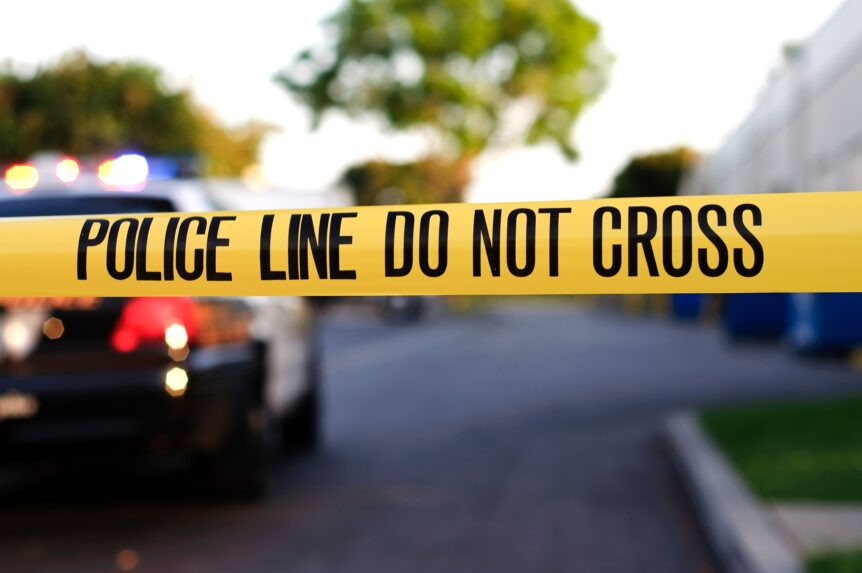Who Cleans Up Blood At A Crime Scene?
When a violent crime occurs, such as a homicide or assault, it’s not uncommon for the crime scene to be soaked with blood. Biohazardous materials at a crime scene must be safely and professionally cleaned up not only to prevent contamination but also to prevent further trauma to the victim’s loved ones. The process of cleaning up a crime scene is the responsibility of the victim’s family. But they will need specialized professionals known as crime scene cleaners to do the job. At Caring Cleanup, we specialize in biohazard and crime scene cleaning, including the safe and proper removal of blood.
Crime scene cleaners are trained professionals who possess specific skills and knowledge required to clean up biohazardous materials such as blood, vomit, feces, and other biological material. In addition to removing the physical aspects of the trauma, crime scene cleaners must also be sensitive to the emotional impact that the event has had on the affected people – family members and first responders. A crime scene cleaner must pay close attention to detail for safety and for legal reasons, ensuring the cleanup is thorough enough to prevent further trauma or lawsuits.
So, Who cleans up blood at crime scenes? The responsibility of cleaning up a crime scene falls heavily on the family members of the victim, but in most cases, they are not equipped with the knowledge or tools required for correctly and safely cleaning up the scene. This is where crime scene cleaners come in.
Cleaning up blood at a crime scene is a challenging task that requires specialized skills, equipment, and PPE. Blood is classified as a biohazardous material meaning that it poses a severe risk of infection to anyone who comes into contact with it. Professionals are required not to only clean up the area but also dispose of the affected materials in a way that follows all the state-required guidelines. Crime scene cleaners are qualified to remove biohazardous materials, such as blood and bodily fluids, and because they are trained to do this work correctly, they ensure the safety of everyone involved.
Professional crime scene cleaners understand the importance of treating their clients with compassion and respect. They understand that the event that led to confronting a bloody crime scene is traumatic. That’s why at Caring Cleanup, we offer a high level of sensitivity and care to make sure that our clients feel supported and understood throughout the entire cleaning process.
We understand the importance of providing our clients with professional services that meet their needs. Our team of technicians is well-trained, has years of experience in the industry, and is equipped with specialized tools and equipment to perform the cleaning safely and efficiently. Additionally, all our technicians are required to wear PPE such as gloves, masks, respirators, and protective suits while on the job to minimize accidents and avoid direct contact with blood and other biohazardous materials.
What Equipment is Used to Clean up Blood? Blood is a biohazardous material that poses a significant health risk to anyone who comes in contact with it. Because of this, specialized tools and equipment are required to effectively clean up blood and ensure it doesn’t pose a risk to the health of others. Some of the equipment used to clean up blood includes:
- Personal Protective Equipment (PPE). Personal Protective Equipment, or PPE, is one of the most essential pieces of equipment for ensuring the safety of everyone involved in the cleanup process. PPE includes gloves, eye protection, face shields, protective suits, and respirators. Gloves are usually made of nitrile or other specialized materials that prevent the penetration of blood-borne pathogens.
- Biohazardous Waste Disposal Containers. After cleaning up the blood, it must be appropriately disposed of. Biohazardous waste disposal containers, also known as sharps containers, are specially designed for disposing of biohazardous materials, including blood-soaked materials. These containers can hold liquid bio-waste without leaking to eliminate the risk of accidents and contamination of the environment.
- Disinfectants. Disinfectants are used to clean and sanitize the affected area after all blood and biohazardous materials have been removed. Disinfectants come in various forms such as hydrogen peroxide and bleach and are specifically formulated to kill bacteria, fungi, and viruses that may be present on surfaces. Professional disinfectants are certified by the Environmental Protection Agency, ensuring they are safe to use in the given space.
Handling of Bloodstained Materials. Materials that are blood-soaked and stained are usually thrown away. However, certain materials, such as clothing and carpeting, can sometimes be saved. To remove blood stains, it’s necessary to treat the affected material appropriately. Crime scene cleaners use specific solutions that dissolve blood and minimize the discoloration of the material.
At Caring Cleanup, we use specialized solutions to remove blood and other biohazardous materials while minimizing the risk of contamination. We are licensed and certified to work in the biohazardous materials field and follow the guidelines set to ensure the cleaning process is efficient and safe. Our professional cleaners understand that a crime scene is a traumatic and sensitive place and approach the work with compassion and respect.
Conclusion. Cleaning up a crime scene is a challenging and physically demanding process that can be dangerous without the necessary skills, tools, and experience. Crime scene cleaners are specially trained to handle biohazardous materials like blood and bodily fluids and are equipped with specialized equipment to do the job safely and effectively.
At Caring Cleanup, we provide professional crime scene cleaning services that are compassionate, respectful, and efficient. We understand the importance of supporting our clients through this challenging process and ensure that our work meets the highest standards of safety, professional cleaning, and technically advanced disposal. If you need help cleaning up after a traumatic event, contact us today for a consultation.

